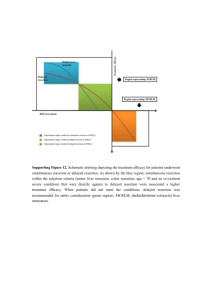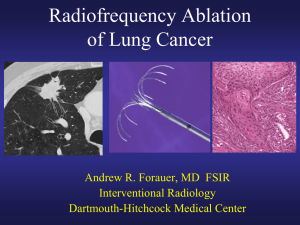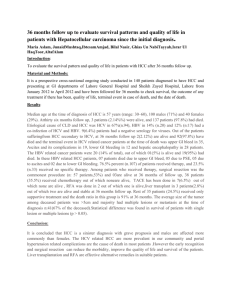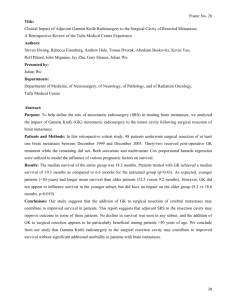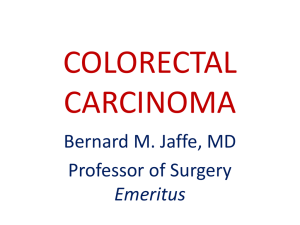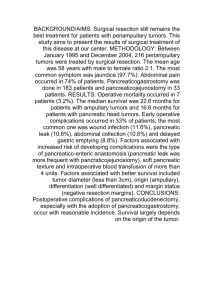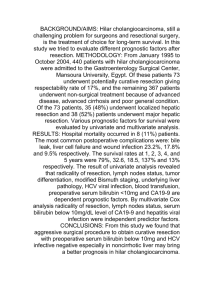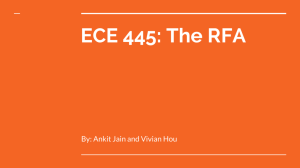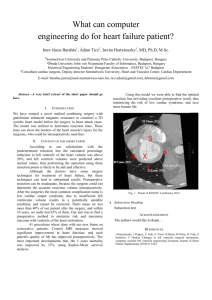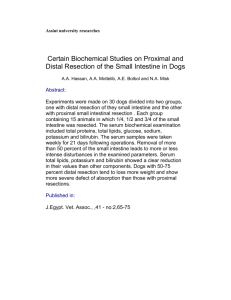Radiofrequency Ablation Compared to Resection in the Treatment of
advertisement
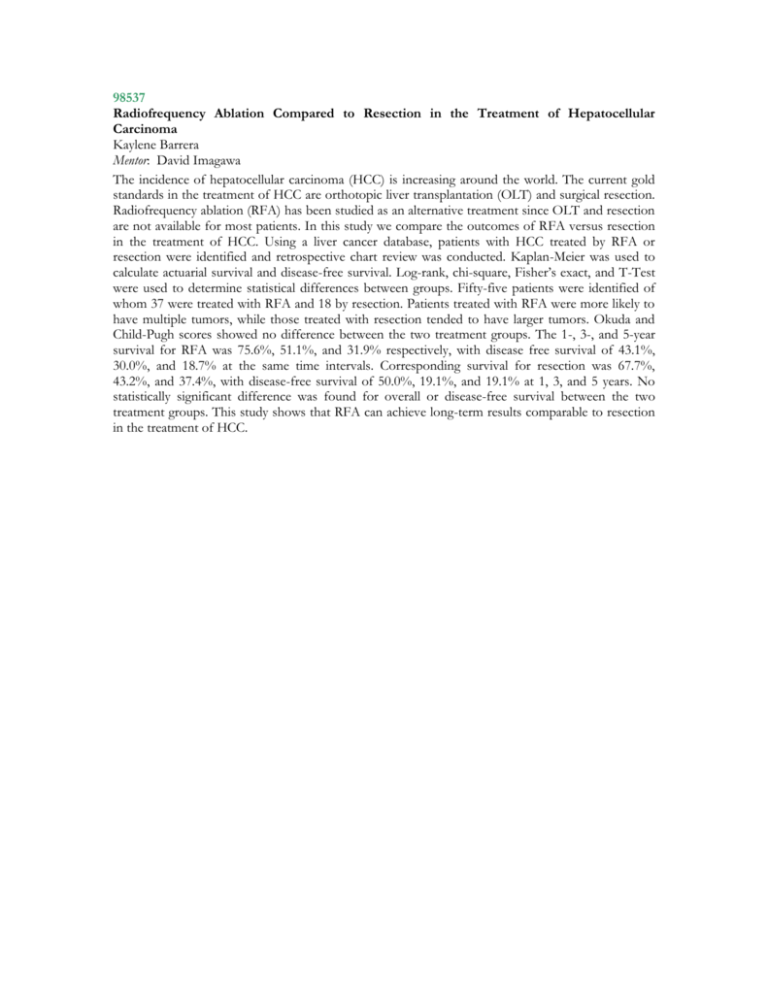
98537 Radiofrequency Ablation Compared to Resection in the Treatment of Hepatocellular Carcinoma Kaylene Barrera Mentor: David Imagawa The incidence of hepatocellular carcinoma (HCC) is increasing around the world. The current gold standards in the treatment of HCC are orthotopic liver transplantation (OLT) and surgical resection. Radiofrequency ablation (RFA) has been studied as an alternative treatment since OLT and resection are not available for most patients. In this study we compare the outcomes of RFA versus resection in the treatment of HCC. Using a liver cancer database, patients with HCC treated by RFA or resection were identified and retrospective chart review was conducted. Kaplan-Meier was used to calculate actuarial survival and disease-free survival. Log-rank, chi-square, Fisher’s exact, and T-Test were used to determine statistical differences between groups. Fifty-five patients were identified of whom 37 were treated with RFA and 18 by resection. Patients treated with RFA were more likely to have multiple tumors, while those treated with resection tended to have larger tumors. Okuda and Child-Pugh scores showed no difference between the two treatment groups. The 1-, 3-, and 5-year survival for RFA was 75.6%, 51.1%, and 31.9% respectively, with disease free survival of 43.1%, 30.0%, and 18.7% at the same time intervals. Corresponding survival for resection was 67.7%, 43.2%, and 37.4%, with disease-free survival of 50.0%, 19.1%, and 19.1% at 1, 3, and 5 years. No statistically significant difference was found for overall or disease-free survival between the two treatment groups. This study shows that RFA can achieve long-term results comparable to resection in the treatment of HCC.
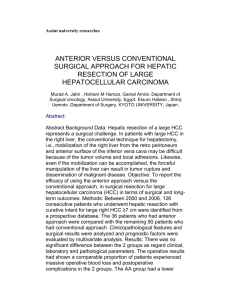
![Supplemental: Tables [2] Figures [2] Table 1s. Early Postoperative](http://s3.studylib.net/store/data/007003319_1-b5e4dd5983c70ba65b2a81b50677f101-300x300.png)
